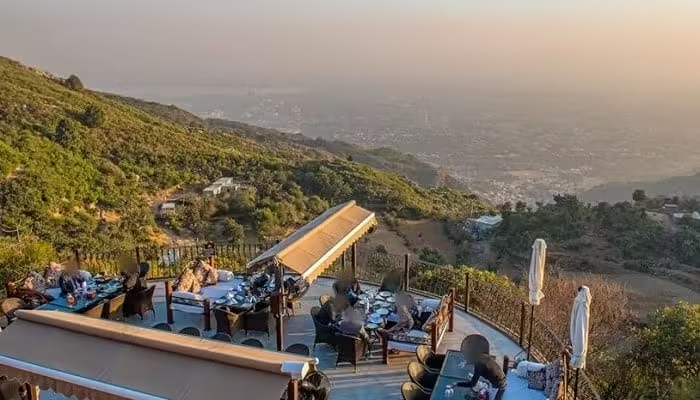In a recent development, Pakistan Iran security cooperation has gained renewed momentum as both countries reaffirmed their commitment to eliminating terrorism and ensuring peace along their shared border. This renewed partnership comes at a crucial time, as the region faces multiple challenges ranging from cross-border threats to regional instability.
Renewed Commitments Against Terrorism
During a recent telephonic conversation, Chief of Army Staff, Field Marshal Asim Munir, and Iran’s Chief of Staff of the Armed Forces, Major General Abdolrahim Mousavi, emphasized their determination to jointly combat terrorism. The Iranian side expressed full readiness to work with Islamabad for the eradication of terrorist groups operating along the border.
Highlighting this commitment, Mousavi also extended solidarity with the people of Pakistan affected by recent floods. He assured that Iran would provide any possible support, describing Pakistan as a “dear brotherly nation.”
This spirit of mutual support reflects the broader direction of Pakistan Iran security cooperation, where both countries view terrorism as a shared threat requiring joint responses.
A History of Shared Regional Challenges
Pakistan and Iran have long faced similar security concerns, especially in border areas where militant groups exploit weak points to launch attacks. For instance, in recent years, multiple incidents of cross-border terrorism have claimed lives on both sides, causing deep concerns for governments and citizens alike.
The cooperation between Pakistan and Iran is not just limited to border management but also extends to intelligence sharing, joint patrols, and increased diplomatic engagement. Strengthening Pakistan Iran security cooperation is, therefore, vital for reducing regional instability and building lasting peace.
High-Level Engagements and Agreements
Earlier this month, Iranian President Masoud Pezeshkian visited Pakistan on a two-day official trip, accompanied by a high-level delegation. The visit was marked by significant developments in bilateral relations. Both countries signed 12 agreements and Memorandums of Understanding (MoUs) to enhance cooperation in areas such as:
- Plant protection and quarantine
- Joint use of the Mirjaveh-Taftan border gate
- Science and technology collaboration
- Culture and media exchanges
- Maritime safety
- Judicial assistance
- Air services agreements
- Tourism cooperation plan (2025–27)
These agreements underline that Pakistan Iran security cooperation is not only about combating terrorism but also about strengthening broader ties that contribute to regional prosperity.
Shared Stance on Peace and Prosperity
During his visit, President Pezeshkian held separate meetings with President Asif Ali Zardari, Prime Minister Shehbaz Sharif, and other top officials. Both sides agreed that peace and prosperity in border regions were directly linked to effective counterterrorism measures.
At a joint press conference, Pezeshkian stated that both countries were committed to enhancing border security for the safety of their people. Prime Minister Shehbaz Sharif reinforced this by declaring that terrorism would not be tolerated under any circumstances. He stressed that an attack in Iran is just as unacceptable as an attack in Pakistan, highlighting the unity of their stance.
Regional Significance of Pakistan Iran Security Cooperation
The growing partnership between Pakistan and Iran is crucial for the broader region. According to the Global Terrorism Index 2024, South Asia remains one of the regions most affected by terrorism, with Pakistan ranked among the top 10 affected nations. This makes security collaboration with neighboring Iran essential to tackling cross-border networks and extremist groups.
Furthermore, stability in Pakistan-Iran relations has implications for energy trade, border economies, and connectivity projects like the China-Pakistan Economic Corridor (CPEC). Strong security measures will not only improve trust but also pave the way for increased economic cooperation.
Challenges Ahead
Despite progress, challenges remain. Smuggling networks, drug trafficking, and militant sanctuaries are persistent issues along the Pakistan-Iran border. Addressing these requires a comprehensive approach that goes beyond military measures to include socio-economic development in border regions.
The success of Pakistan Iran security cooperation will depend on consistent political will, trust-building, and practical steps like strengthening border infrastructure, improving intelligence sharing, and empowering local communities.
The reaffirmation of Pakistan Iran security cooperation marks an important step toward ensuring peace and security in a region facing complex threats. By committing to fight terrorism together, enhancing border security, and signing agreements in diverse fields, both countries are signaling their determination to build a more stable and prosperous future.
As the region continues to navigate security challenges, the growing partnership between Pakistan and Iran stands as a reminder that cooperation, not confrontation, is the key to lasting peace.



